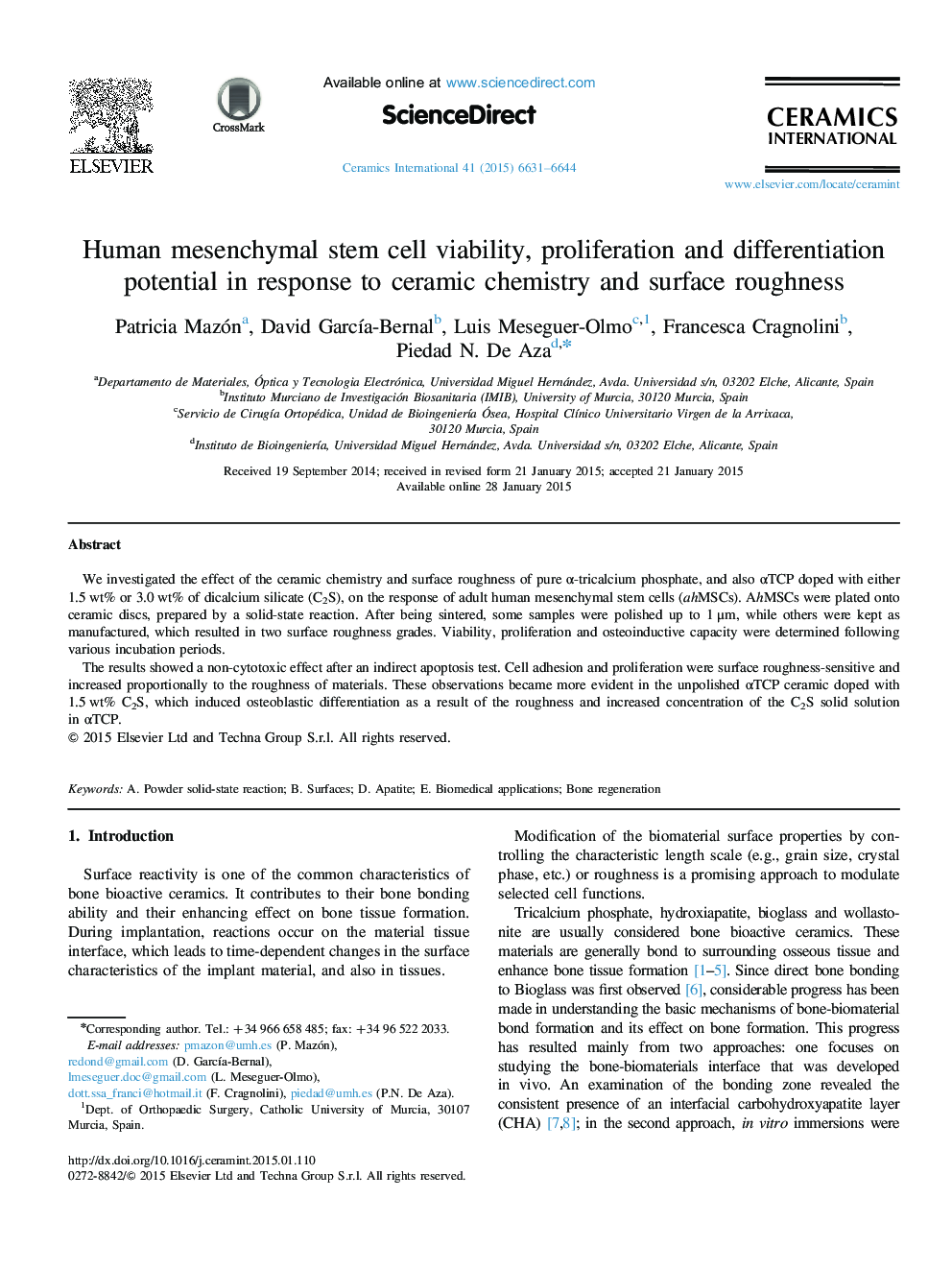| Article ID | Journal | Published Year | Pages | File Type |
|---|---|---|---|---|
| 1459874 | Ceramics International | 2015 | 14 Pages |
We investigated the effect of the ceramic chemistry and surface roughness of pure α-tricalcium phosphate, and also αTCP doped with either 1.5 wt% or 3.0 wt% of dicalcium silicate (C2S), on the response of adult human mesenchymal stem cells (ahMSCs). AhMSCs were plated onto ceramic discs, prepared by a solid-state reaction. After being sintered, some samples were polished up to 1 μm, while others were kept as manufactured, which resulted in two surface roughness grades. Viability, proliferation and osteoinductive capacity were determined following various incubation periods.The results showed a non-cytotoxic effect after an indirect apoptosis test. Cell adhesion and proliferation were surface roughness-sensitive and increased proportionally to the roughness of materials. These observations became more evident in the unpolished αTCP ceramic doped with 1.5 wt% C2S, which induced osteoblastic differentiation as a result of the roughness and increased concentration of the C2S solid solution in αTCP.
